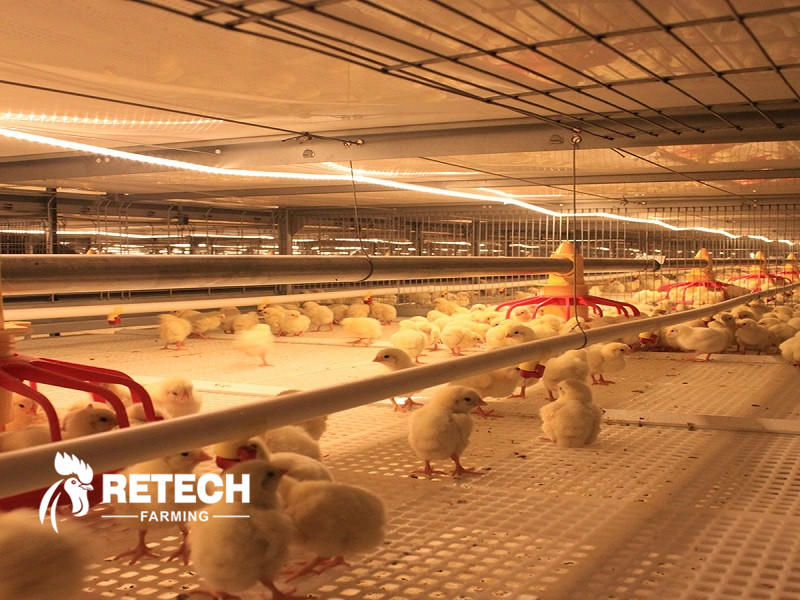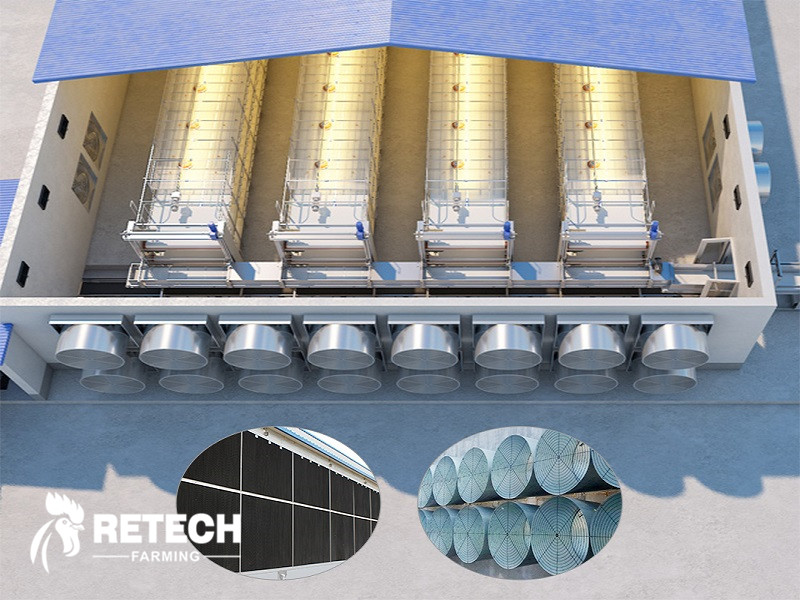The problem that often exists in chicken farms is that broilers will suffer from some diseases during the feeding process, which will affect the growth of broilers. The reason for this is mainly caused by improper daily feeding and management.
Early stage of rearing (0~10 days old)
Mainly controls Salmonella and Escherichia coli. The mortality rate is generally about 2% to 3%, accounting for about 30% of the total number of deaths in the whole period.
The main reasons are: breeding chickens carry bacteria, vertical transmission; poor conditions in the hatching hall, incomplete disinfection; poor brooding conditions, the temperature fluctuates high and low, especially the use of coal stoves for heating, large dust, poor ventilation, etc.
Treatment method: Enter chicks from a regular and well-conditioned hatchery; improve brooding conditions, use a heater for heating, reduce dust, maintain suitable temperature and humidity, and avoid temperature fluctuations to prevent colds.
Drugs should be used in a timely manner, drug selection should be appropriate, and epidemic prevention should be done on time. Generally, the mortality rate can be greatly reduced by taking 3 to 5 days of medication. Epidemic prevention should flexibly determine the immunization dose and immunization type according to the situation of the flock and the local epidemic situation.

broiler chicken cage
Mid-breeding period (20-40 days old)
Mainly controls coccidiosis, mycoplasma and E. coli, while paying close attention to bursitis. The mortality rate is generally about 3%, accounting for about 35% of the total death in the whole period.
The main reasons: the chicken farms is wet, the stocking density is high, and the stress factors such as immunity and grouping frequently disturb the flock; environmental disinfection is not paid attention to, and the use of antibiotics is unreasonable.
Treatment method: Improve the conditions of the chicken farms, increase the ventilation (on the premise of ensuring the temperature), control the temperature, keep the litter dry, and frequently disinfect the environment and chickens.
To prevent coccidiosis, several drugs with different modes of action should be used alternately. Pay attention to drug resistance and drug residues. Conditionally, use online flat breeding to separate chickens from feces and reduce the chance of infection.

broiler chicken cage
Late rearing (45 days old/slaughter)
Mainly control Escherichia coli, atypical Newcastle disease and its mixed infection. The mortality rate generally accounts for about 34%, accounting for about 35% of the total death in the whole period.
Main reasons: the environment of the chicken farms deteriorated; Escherichia coli and respiratory diseases were not controlled in the mid-term, especially the chickens with bursalitis in the mid-term, because the immune organs were suppressed, it was easy to induce atypical Newcastle disease, and the clinical manifestations were mostly Escherichia coli The disease, neglected treatment of Newcastle disease caused a large number of deaths.
Treatment method: Improve the environment of the chicken farms, increase the ventilation, and disinfect frequently. Use 2 to 3 kinds of disinfectants alternately. Note that environmental disinfection should not be carried out two days before and after the immunization. To do a good job of Newcastle disease immunization in the early and mid-term, the procedures are reasonable and the methods are appropriate. Preventive medication, at this time medication should be combined with antibiotics and antiviral drugs. Remember to pay attention to this and the other, and pay attention to the withdrawal period. Feed the healthy source of probiotics, adjust the environment in the digestive tract, restore the balance of flora.

broiler farm
Follow us we will update the breeding information.


